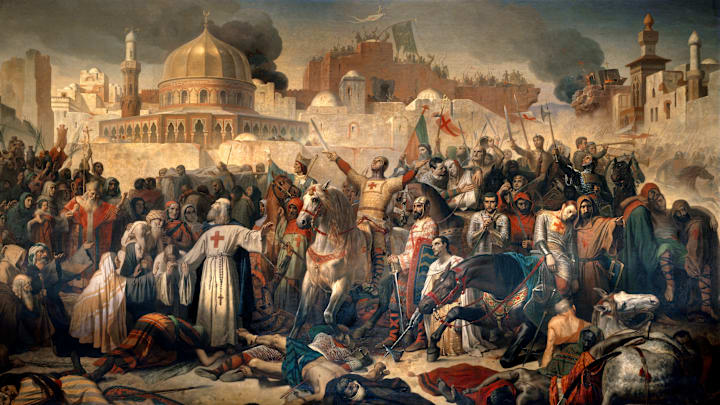The Role of Religion in the Crusades

The origins of the Crusades can be traced to the political and religious landscape of medieval Europe and the Middle East. By the late 11th century, the Seljuk Turks, a Muslim dynasty, had gained control of Jerusalem and much of the Byzantine Empire's territory in Anatolia. The Byzantine Emperor Alexios I Komnenos, facing military pressure from the Seljuks, appealed to Pope Urban II for assistance.
In 1095, Pope Urban II called for the First Crusade at the Council of Clermont, urging Christians to take up arms to reclaim the Holy Land and defend fellow Christians. Urban's call was deeply rooted in religious motivations, framing the Crusades as a holy war (bellum sacrum) and offering spiritual rewards, such as indulgences, to those who participated. The promise of remission of sins and eternal salvation served as powerful incentives for knights and commoners alike to join the Crusades.
The religious fervor that drove the Crusades was also reflected in the concept of pilgrimage. Jerusalem, home to the Church of the Holy Sepulchre and other sacred sites, was a major destination for Christian pilgrims. The Crusaders saw their mission as a form of armed pilgrimage, with the dual goal of spiritual redemption and the liberation of the holy sites from Muslim control. This religious motivation was reinforced by the preaching of charismatic figures such as Peter the Hermit, who inspired thousands to join the cause.
The religious nature of the Crusades shaped the conduct of the campaigns and the interactions between Christians and Muslims. The Crusaders viewed their mission as a divine mandate, often leading to extreme acts of violence and brutality justified by religious zeal. The capture of Jerusalem in 1099 during the First Crusade was marked by the massacre of its Muslim and Jewish inhabitants, an act seen by the Crusaders as fulfilling God's will.
Religion also played a role in the internal dynamics of the Crusader states established in the Levant. The Kingdom of Jerusalem, the County of Tripoli, the Principality of Antioch, and the County of Edessa were governed by a mix of religious and secular authorities. The Latin Church sought to consolidate its influence in the region, establishing ecclesiastical structures and promoting the Latin Rite among the local Christian populations.
The Crusades had a significant impact on the relations between Christians, Muslims, and Jews. While the primary focus was on the conflict between Christians and Muslims, the Crusades also exacerbated tensions with Jewish communities. The First Crusade, in particular, saw widespread anti-Semitic violence in Europe, with Crusaders attacking Jewish communities in the Rhineland and other regions, motivated by a misguided belief in purging non-Christians as part of their holy mission.
The religious motivations of the Crusades were not confined to Christians. Muslim leaders and scholars also framed the conflict in religious terms, viewing the Crusaders as infidels and invoking the concept of jihad (struggle) to defend Islamic territories. Prominent Muslim leaders such as Saladin, who recaptured Jerusalem in 1187, were celebrated for their piety and dedication to defending Islam against the Crusader invaders.
The legacy of the Crusades is complex and multifaceted. While they ultimately failed to establish lasting Christian control over the Holy Land, the Crusades had significant cultural, economic, and political impacts on both Europe and the Middle East. The Crusades facilitated cultural exchange and the transmission of knowledge, including advances in medicine, science, and architecture. The exposure to Eastern goods and trade routes also contributed to the economic development of Europe.
In conclusion, religion played a central and defining role in the Crusades, shaping the motivations, actions, and perceptions of the participants. The concept of holy war, pilgrimage, and the promise of spiritual rewards were powerful drivers of the Crusades, influencing the course of medieval history. The legacy of the Crusades continues to be felt in contemporary discussions on religious conflict, intercultural relations, and the complexities of faith and warfare.